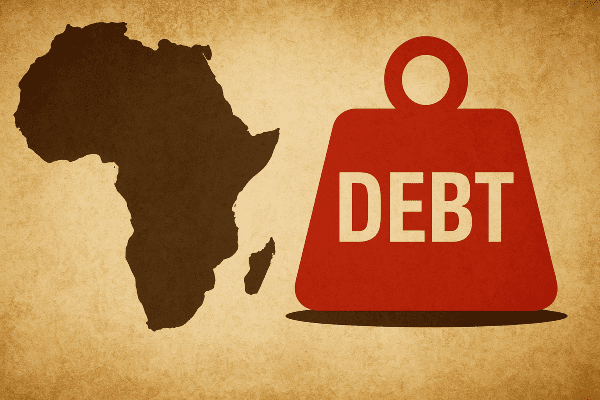Over 20 prominent global economists, including Nobel Prize winner Joseph Stiglitz, have issued an urgent call for debt relief targeting low and middle income countries as the World Bank Group and International Monetary Fund hold their Annual Meetings from October 13 through 18 in Washington, D.C.
The open letter argues that capping debt servicing costs at 10 percent of government revenue in 21 African countries could provide clean water to roughly 10 million people and prevent approximately 23,000 deaths of children under five years of age annually.
Many African nations now spend more servicing external debt than funding healthcare and education. African governments currently spend an average of 17 percent of their revenues on debt servicing, diverting crucial resources away from schools, hospitals, and climate action. The economists describe this situation as countries “defaulting on development” even when they aren’t formally defaulting on debt obligations.
The coordinated push comes from signatories to the ONE Campaign initiative, whose contributors include members of the Jubilee Commission examining debt sustainability. The expert panel chaired by Stiglitz has called for a new round of debt relief for African countries to prevent a ‘perfect storm’ of rising financing costs making it harder for them to fund healthcare and education.
Their intervention arrives at a critical moment, with many experts viewing the G20’s current South African presidency as a final window for meaningful reform before leadership rotates to the United States next year.
Current relief efforts have proven inadequate. So far, the G20’s Common Framework for debt treatment has relieved just seven percent of the total value of external debt owed by at risk lower income countries, according to analysis by Debt Justice and the African Center for Economic Transformation.
The economists propose several concrete solutions. They urge the World Bank and IMF to replenish their debt relief funds urgently and ensure countries can access flexible debt relief options tailored to their unique circumstances. They also call for innovation in debt restructuring processes, using existing policy tools more effectively to prevent World Bank and IMF financing from simply bailing out holders of unsustainable debts.
Changes to debt legislation could discourage holdout creditors, while reforms to the Common Framework process would make it more efficient and fairer. The letter emphasizes that debt sustainability analyses must become more transparent and accountable, accurately reflecting risks while incorporating development and climate needs.
The economists advocate for strategic alliances among borrowers through a “Borrowers’ Club” that would enable negotiation from positions of strength. Such coordination could ensure debt resolution serves the interests of developing nations rather than only creditors.
“Bold action on debt means more children in classrooms, more nurses in hospitals, more action on climate change, more jobs, more trade, and less need for aid,” the letter states, framing reforms as serving the global interest.
The African Center for Economic Transformation is expected to release detailed research this week quantifying how various debt ceiling scenarios, ranging from five to 14 percent of government revenue, would translate into improved access to clean water, healthcare, and education across the continent.
Meanwhile, new analysis from Boston University’s Global Development Policy Center examines China’s evolving role in development finance. The research, released last Friday, reveals China has transitioned from the world’s largest bilateral lender to experiencing negative net transfers, now repaying more to its own international creditors than it receives.
This shift has direct implications for African borrowers. In four countries including Samoa, the Maldives, Tonga, and Myanmar, net transfers from Chinese lenders were equivalent to over five percent of government spending in 2023. Another five nations saw Chinese net transfers account for over two percent of government expenditures.
As the Washington meetings continue, civil society organizations plan coordinated protests against rising global inequality. The Fight Inequality Alliance is organizing demonstrations demanding economic justice, while prominent advocacy groups prepare an open letter to South African President Cyril Ramaphosa criticizing the lack of progress on debt reform under his country’s G20 presidency.
The G20 Finance Ministers Meeting on October 15 through 16 in Washington is expected to produce a declaration on debt relief, which will likely prompt responses from economists and advocacy groups monitoring the talks.
Source: newsghana.com.gh











